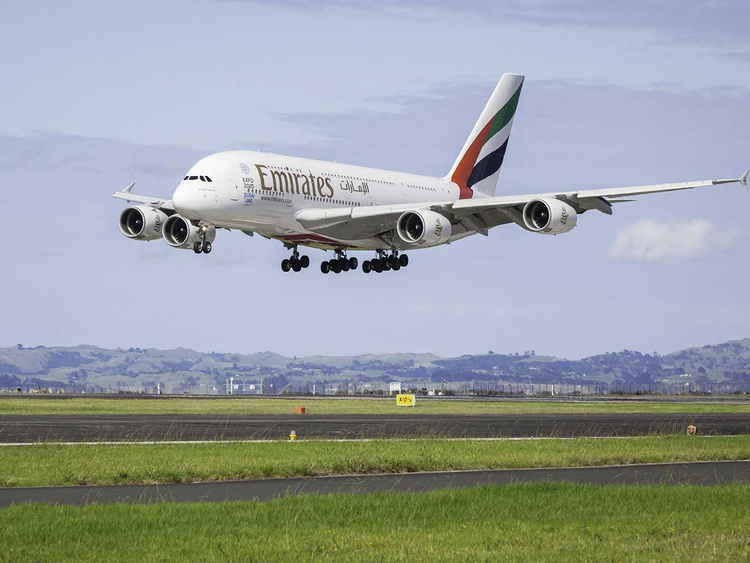Dubai: A Paris-bound A380 Emirates flight was forced to divert to Cyprus Airport on Friday when a woman gave birth in mid-flight, confirmed airline officials on Sunday.
The delivery of the baby caused quite a stir among staff at Larnaca International Airport in Cyprus where the mother and baby were medically evacuated from the flight and taken to nearby hospital for necessary follow-up medical attention.
Cyprus Airports tweeted at 10.28pm on Friday: “They say great things come in small sizes. Well we received a sweet surprise today at #Larnaka #Airport. A baby delivered with an #A380!”
They say great things come in small sizes. Well we received a sweet surprise today at #Larnaka #Airport. A baby delivered with an #A380! pic.twitter.com/5LJEqq4qQd
— Cyprus Airports (@CyprusAeropolis) May 12, 2017
In a statement on Sunday to Gulf News, Emirates confirmed the birth did occur and that the flight was diverted.
“Emirates can confirm that a passenger travelling onboard Emirates flight EK075 gave birth en route from Dubai to Paris on 12 May 2017. We have supported the passenger during this period and her health and safety has of course been paramount,” said an Emirates spokesperson. “As a result, the flight was diverted to Larnaca International Airport. The aircraft was refueled and re-departed for Paris with a delay of approximately five hours.”
Emirates repeated its longheld policy that a passenger’s health is a priority policy when flying.
“The wellbeing and safety of our passengers and crew are of the utmost importance to Emirates and will not be compromised,” the spokesperson said.
Reactions to the news on social media sites queried how the birth took place on a flying aircraft when expectant mothers are routinely not allowed to fly within certain timeframes for medical reasons by their doctors.
It’s still unclear why the woman gave birth on the plane given that airlines have very strict rules that ban some pregnant women from flying as their due date draws nearer.
Emirates declined comment when asked by Gulf News on its rules governing pregnant women passengers nor did the airline discuss the condition of this particular new mother.
On its website section advising people about “travelling while pregnant”, Emirates makes it very clear to passengers that if they are “pregnant and plan to travel once you have entered your 29th week of pregnancy, a medical certificate or letter signed by an appropriately qualified doctor or midwife is required, stating: the confirmation of a singleton or multiple pregnancy; the pregnancy is progressing without complications; the estimated date of delivery; the date up to which you are expected to be fit to travel; that you are in good health [and] that there is no reason known to them that would prevent you from flying.”
Emirates warns on its online advisory that if a pregnant passenger chooses “not to carry a valid medical certificate, you may not be accepted for travel if there is any doubt about your ability to complete the journey safely.”
The timeline also changes for women who are expecting a multiple birth are not permitted to travel after the 32nd week of gestation.
The airline also suggest that pregnant passengers should give some thought to “whether the medical facilities at your destination country are adequate to cope with any problems which may arise. Sufficient travel insurance is strongly recommended in case of preterm labour abroad. It is wise to avoid travelling to remote locations whilst pregnant.
Some countries restrict or limit entry of non-national pregnant women. We recommend that you consult with the local consulate or embassy if in any doubt.”













